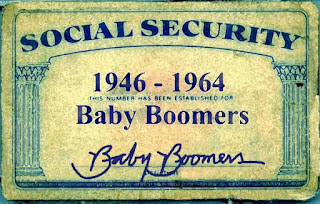Naughty or Nice?

A few years back — when my kids still believed in the reality of Santa Claus — we discovered an ingenious website. This was a website that purported to offer a real-time assessment of your “naughty or nice” status. Now, as Christmas approached, it was not uncommon for us to caution our occasionally misbehaving brood that they had best be attentive to how those actions might be viewed by the big guy at the North Pole. But nothing ever had the impact of that website — if not on their behaviors (they were kids, after all), then certainly on the level of their concern about the consequences. In fact, in one of his final years as a “believer,” my son (who, it must be acknowledged, had been particularly naughty that year, and he knew it) was on the verge of tears, worried that he’d find nothing under the Christmas tree but the nuggets of coal in his stocking he so surely deserved. Bad Behaviors? With so many reports purporting to chronicle the sorry state of retirement confidence...











